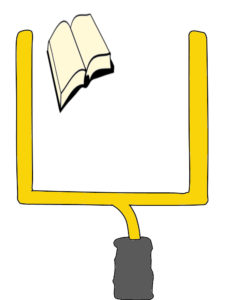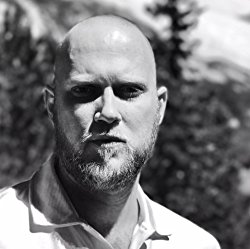Finishing a novel is a HUGE achievement (and I’m not just talking about word count). It doesn’t matter if it’s your first or your fiftieth, it’s still a huge weight off your shoulders knowing that the first draft is done. Well, at least it is until you remember that now you have to do revisions and edits.
In my experience, starting all that tough, nit-picky work so soon after finishing the draft isn’t good for you. If I dive back in so soon I get sick of my own work, and sometimes even resent it for depriving me of the time to watch the backlog of shows on my DVR or the cool new thing on Netflix. The last thing I want to happen, is for me to hate my own work for something so petty — especially after all the hard work I put into it. That’s why I treat myself to two things after the completion of the first draft. The first is a tangible treat that somehow ties in to something I love about that particular story. Sometimes it’s a piece of inexpensive jewelry, and sometimes it’s a piece of clothing or art. What’s the second thing?
Nothing.
That’s right. Nothing.
After finishing the first draft I give myself permission to not write or do any other work on that draft for one week. During that week I can veg on the couch and watch as many shows and movies as I want. I can also read as many books in my bedside stack as I want. The obvious reason for this is that I can’t resent my work for keeping me from watching the new season of Forged in Fire if I’ve already watched it. I can’t be tempted by the new lovely in my reading stack if I’ve already read it. Plus the growing backlog of episodes, and the growing stack of awesome books, become the carrots that are dangled before me while I’m working on that initial draft.
The less obvious reason is that it allows the creative side of my brain to rest and renew while the more studious side of my brain can pick apart the plots of the shows and books I’m partaking of. It’s hard, especially after taking one of Dave Wolverton’s writing courses, to turn my brain completely off when taking in a story. It doesn’t matter if the medium is visual, audio, or printed. I can’t stop myself from poking a metaphorical finger at other people’s plot holes, or admiring some great pacing and then reviewing that section over and over to figure out exactly how they did it. So my vacation suddenly becomes an educational experience that can improve my own writing. Yay!
Okay. I realize that it probably looks like a cheat to be studying someone else’s writing when I’m taking a break from writing. Well, it’s not. The break is from my own writing. Besides, heaven forbid I resent my vacation from writing for keeping me from doing the writerly things that I love. If the studious side of my writer brain is busy looking for tropes and Chekov’s arsenal, the rest of me can enjoy the break without conflict.
I also find that one week is the perfect length of time. I can make a noticeable dent in the backlog of stories to partake of, but it’s not so long a break that my readers start to wonder if I’ll ever truly finish my next book.
It can be a tricky balance to maintain — sacrificing for your work without hating the necessity of making sacrifices — but it can be maintained. For me this is one of the small ways I can maintain that balance while preventing burn out. In the spirit of Your Miles May Vary, a shorter or longer interval may work better for you. Instead of TV it may be gaming that you need the break for. I know authors who write short stories between drafting and editing as their break/treat. Whatever works best for you. Burn out and self-resentment are terrible things that have destroyed too many writing careers. It’s important to know what treat you respond best to and to use that to maintain a healthy balance that will keep you engaged and interested in the work now and in the years to come.


